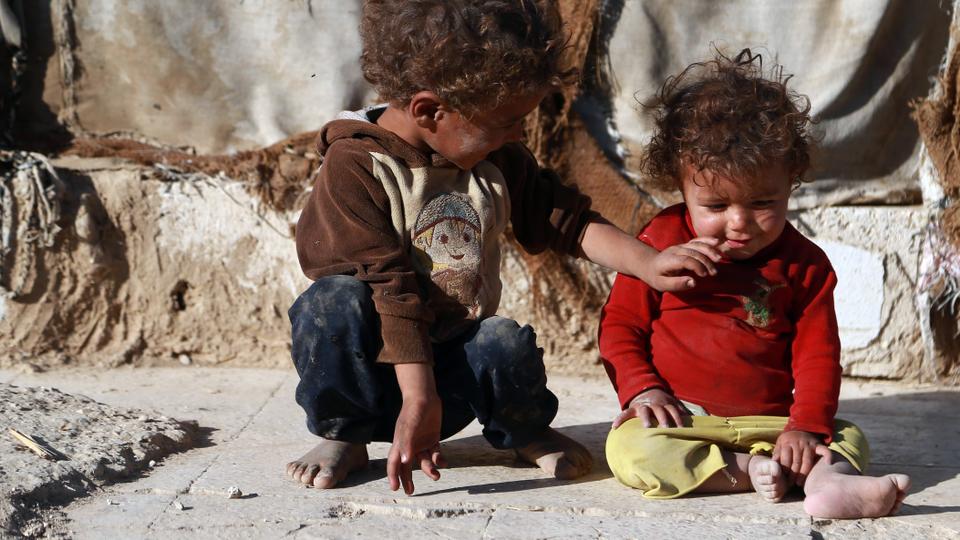How to raise a spiritual child without religion
How to raise a spiritual child
What to expect at this age
Though toddlers are too young to grasp abstract concepts, they have other skills that serve them well in terms of spirituality: They're naturally curious about the world, have no problem believing in things they can't see, and live almost entirely in the moment. "Young kids have an incredible sense of wonder – they're innate spiritual beings," says Marianne Neifert, pediatrician, author, and mother of five.
Although your toddler is a bit young for serious spiritual teaching, you can begin nurturing her spiritual side in other ways. For now you might just encourage her to be kind to others or mention your faith when you answer her cosmic questions.
No matter how small the steps you take are now, they'll be helpful in creating a foundation that can help her during trying times later in life. As your child grows older, strong ties to family and community as well as a sense of personal contribution and purpose can make her more resilient in the face of adversity. Religion serves this purpose for many people, but you don't have to be religious to have a strong spiritual life.
What you can do to nurture your child's spirituality
Clarify your own beliefs. Whether or not you practice an organized religion, you'll need to decide what you believe in order to foster spirituality in your child. That doesn't mean you have to have all the answers, but you can take time to consider the questions: Do you believe in God? Do you believe there was a divine element in the creation of the world? What do you think happens when a person dies?
In addition to your own beliefs, consider what kind of spiritual education you want for your child: Will your family join a church, synagogue, or other house of worship? Do you want your child to attend services regularly? Do you plan to send him to a religious school? If you and your partner have different beliefs, it's wise to decide how you'll approach spirituality with your toddler now, before he's old enough to get confused by your differing opinions.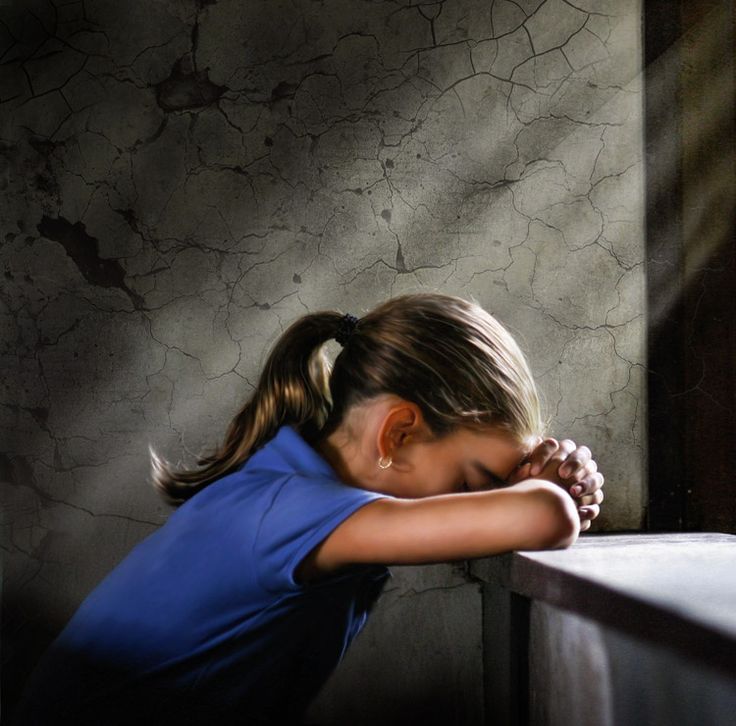
Introduce spirituality early on. "Young children don't understand who God is, but they don't really understand who a grandparent is either," says Neifert. "Still, you want them to know Grandma, so you start talking about her from day one. It's the same thing with the idea of God." Just as your child takes your word for it that Grandma is an important person in her life (even if she rarely sees her), so she'll take your word for it that God is, too.
And by introducing spiritual practices when she's young – such as lighting candles or singing hymns together – your toddler will view them as a natural part of life, and you'll have a spiritual influence on her before other people do.
Even if you don't believe in God or see God as a single all-powerful being, it's worth talking to your child about it. "Kids are going to hear about God all over," says Neifert. "If you don't put your own spin on it, with your own values, they'll absorb someone else's."
If you don't believe in organized religion, you can still encourage her to respect others' beliefs.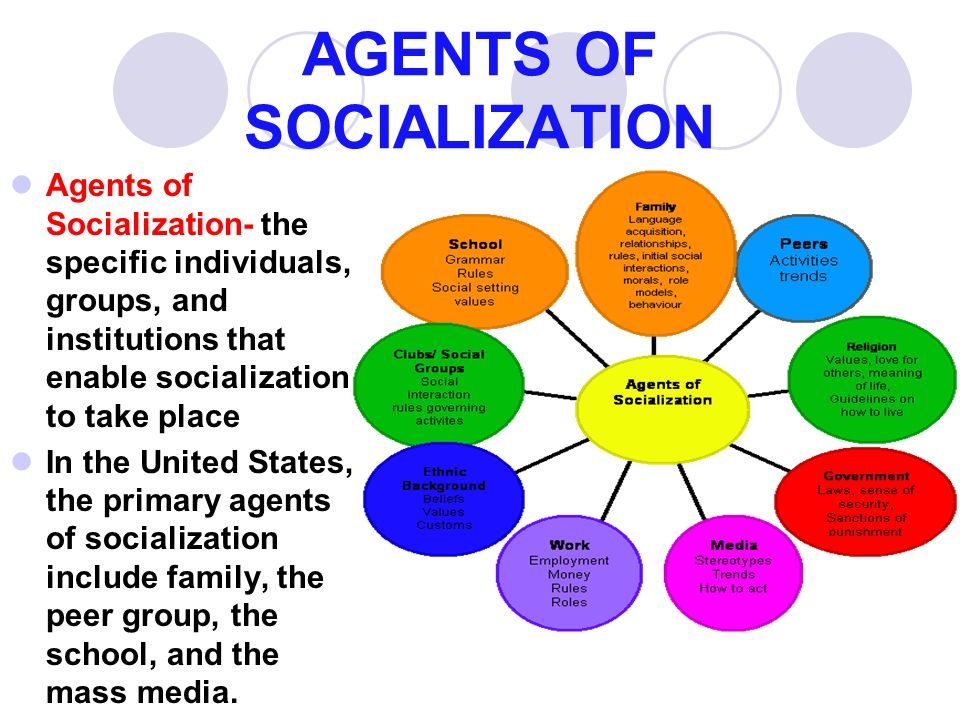 And learning right from wrong, developing a sense of family history, and demonstrating a caring attitude toward others all help build the foundation of a rich spiritual life.
And learning right from wrong, developing a sense of family history, and demonstrating a caring attitude toward others all help build the foundation of a rich spiritual life.
Advertisement | page continues below
Don't pretend to have all the answers. Your toddler may not have the ability to ask or completely understand where people go when they die, but you can still talk about it honestly. Keep it short and simple: "Nobody knows for sure, but some people think they go to heaven to be close to God. Other people think they're born again in a new body."
If you have a strong belief, share it. If not, it's okay to admit that there are some questions people spend their whole lives trying to figure out — and this is one of them.
Use daily events to teach spirituality. Big ideas don't always require big actions. You can demonstrate that spirituality is a part of everyday life by incorporating it into ordinary actions and words. When you open the curtains in the morning, you can say, "Look at this glorious day Mother Nature made. " At bedtime, you can sign off with, "God bless you, sweetie pie."
" At bedtime, you can sign off with, "God bless you, sweetie pie."
Instill an appreciation of nature. Nature is a great place to find inspiration and a sense of spirituality. "Kids learn with all their senses – they love to pick up a rock or jump in a puddle or chase a butterfly," says Neifert.
Help your child see nature as something precious by demonstrating your own love and respect for it. When you go for a family hike in the woods or a picnic on the beach, clean up after yourself (and even others), and be considerate of creatures in their habitat.
Plant a garden with your child, and make it part of your daily routine to check on the progress of the plants together. Start a compost pile so your child can watch mealtime leftovers turn back into soil that you'll use in your garden. Introduce him to the idea that the Earth is a gift, and that our survival depends upon the survival of the planet.
Tell stories. The world's spiritual traditions are full of stories designed to explain everything from how the world was created to why people sometimes do bad things.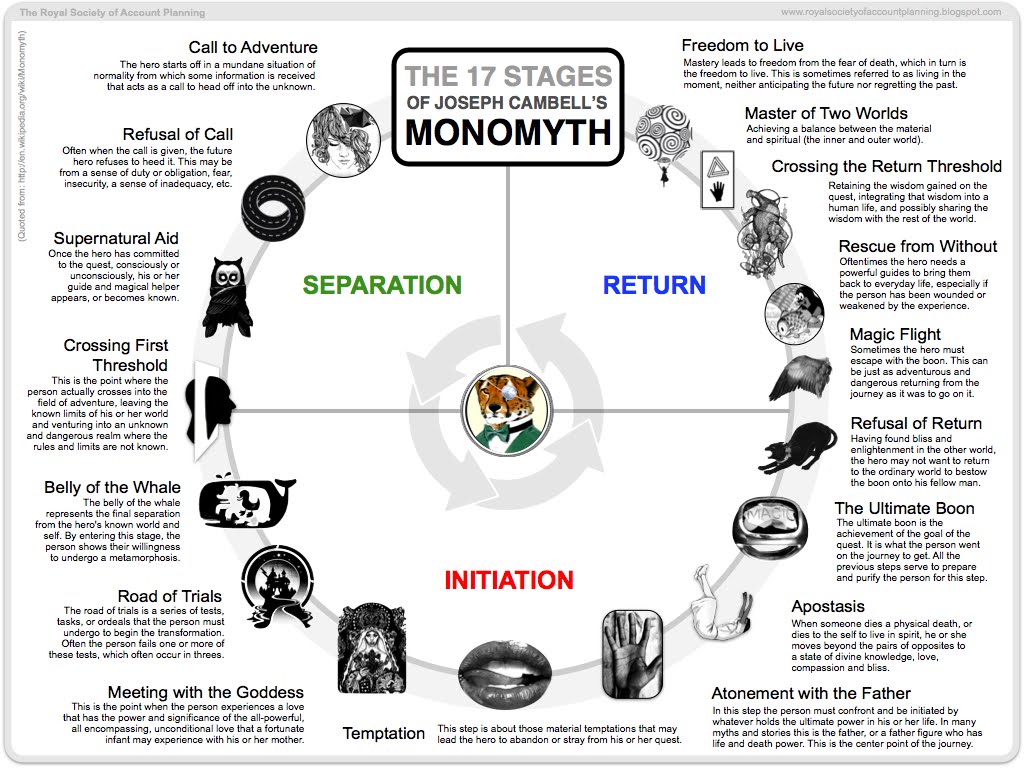 Introduce your toddler to the notion that different people have different beliefs, myths, and traditions by drawing on this wealth of literature.
Introduce your toddler to the notion that different people have different beliefs, myths, and traditions by drawing on this wealth of literature.
Read stories together from an illustrated Bible, a book of Hindu mythology, or a collection of Jewish folk tales, amending and simplifying as you see fit. Even if you're reluctant to foster a literal interpretation of the Scriptures, for example, reading such stories will give your child the opportunity to ask questions – if not now, when she gets older.
Build on family traditions. Spirituality can connect us to the divine, to each other, and to the past. If you're raising your child in the same spiritual tradition that you were raised, be sure he knows that he's carrying on family rituals that were passed along by his grandparents and even great-grandparents.
Show him pictures of his grandfather taking his first communion. Let him help polish a pair of Sabbath candlesticks that were handed down by your parents. And be sure to tell the same family stories at holiday time that you listened to as a child.
And be sure to tell the same family stories at holiday time that you listened to as a child.
Family traditions can be nonreligious as well. Volunteering at a food bank at Thanksgiving or planting a tree on Earth Day reinforces your child's connection with the family and helps him realize that the world can be a better place because he's in it. And when's he's old enough to understand what all this means, he'll be watching you carefully and learning from your example.
Make it fun. Religion and spirituality should be more joyful than somber and serious. Encourage your toddler to paint a picture of God, make up her own story about how the world came to be, or simply imagine what heaven looks like. Together, act out plays or put on a puppet show based on creation stories or your own spiritual themes.
Above all, do what spiritual people have done for centuries – sing and dance! If you don't know any traditional tunes, many recordings of religious music are available.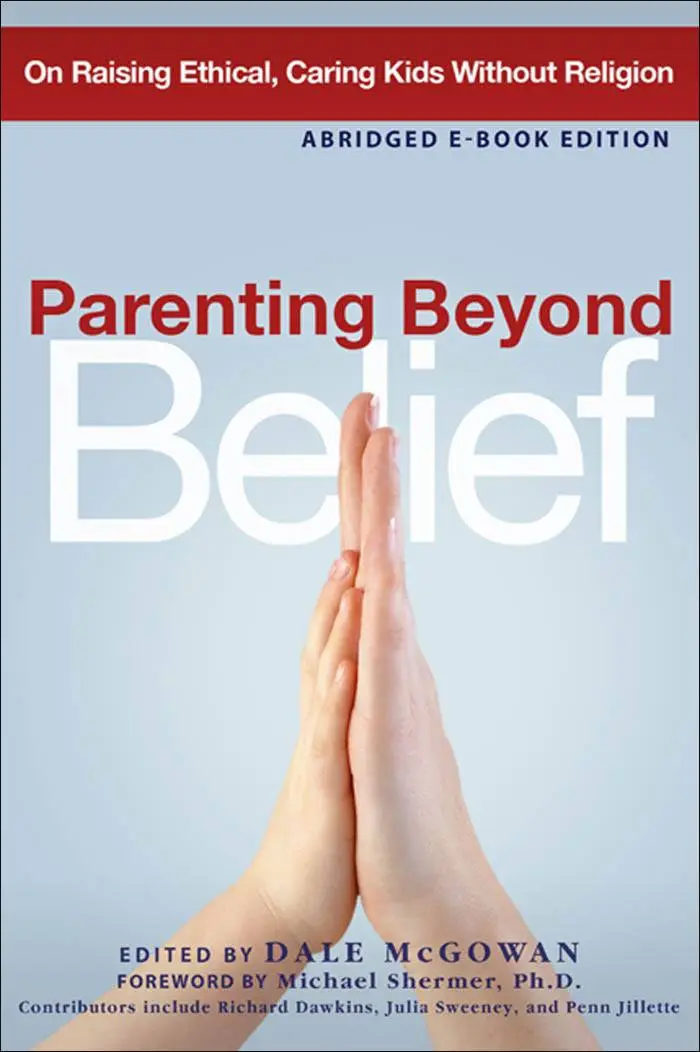 Don't forget to explore songs and chants from other cultures or traditions as well.
Don't forget to explore songs and chants from other cultures or traditions as well.
Practice silence. Once a day or once a week, take a minute to sit quietly with your toddler. Your moment of silence needn't be introduced as meditation, but simply as a chance to sit still and listen to the sounds around her. Eventually, it'll help put her in touch with the "big picture."
Introduce a simple form of prayer. If prayer is part of your spiritual practice, let your toddler know that it isn't something that's saved up just for Sunday morning, or for times when he needs help with something. It's a tool for communicating with a higher power anytime.
So invite him to join you in saying a prayer at different times of the day – for example, when he sees something beautiful, when he does something new for the first time, when he wakes up, or at bedtime. A simple prayer of thanks before or after meals can be an easy and effective way to instill appreciation for the basics of life.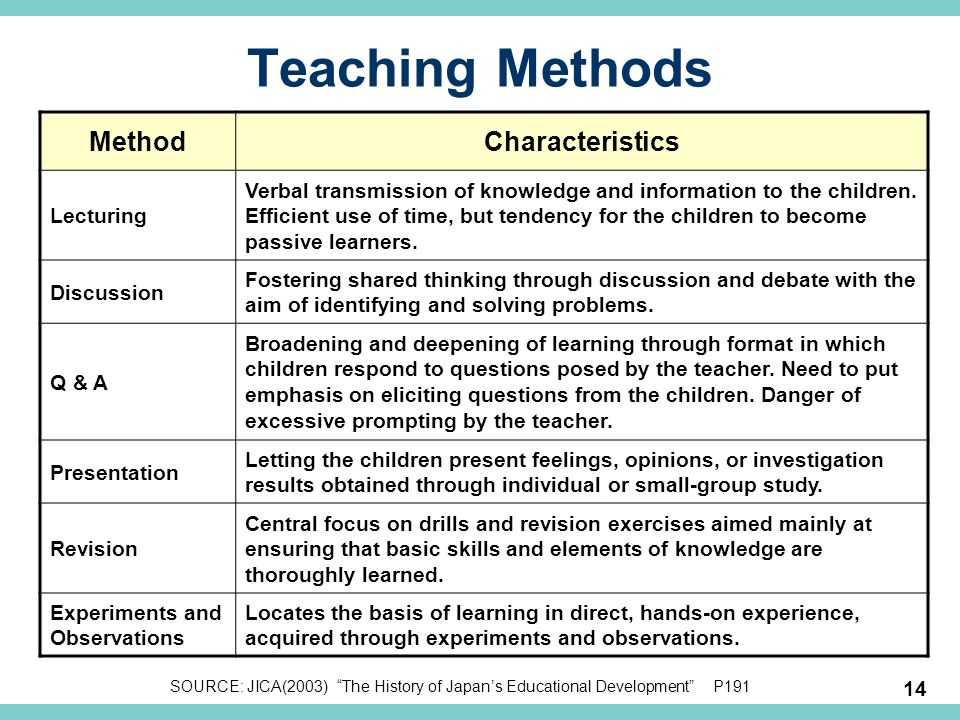
If your child is too young to make up his own prayers, help him along with what Neifert calls "ping-pong" prayers: You suggest a simple phrase such as, "Thank you, God, for..." and he fills in the blanks. The idea is to let your child know that God, or the divine spirit, is always available. "If the being who created the whole universe can listen to you, that's pretty good," says Neifert.
If your family's not religious, you can still teach your child to stop a moment and be grateful for his comfy bed, a beautiful flower, or a friendly smooch from his dog. Set an example by telling him, "I'm so happy we have this sunny day to play in the yard, aren't you?"
Stress the spiritual side of holidays. Try to balance the commercialism of the holiday season with activities that underscore its deeper meaning. Volunteer at a local charity. Donate food, clothing, or toys to a shelter, and have your toddler take part by choosing a few items she no longer plays with.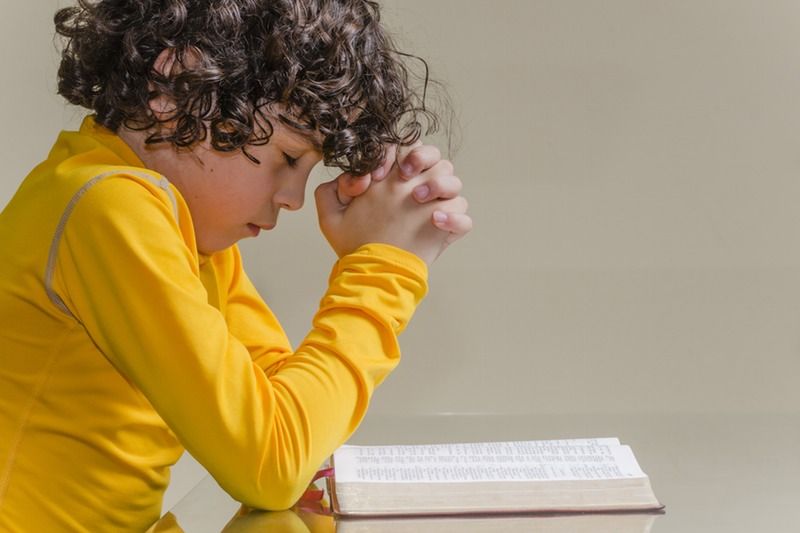 Participate in church or synagogue events centered on holiday themes.
Participate in church or synagogue events centered on holiday themes.
On the fun side, share some meaningful playtime with your toddler: Play with nativity scene dolls, craft a menorah out of clay, or have your toddler help place a set of candles in a Kwanzaa kinara to represent the seven principles of the holiday.
Consider joining a faith community or a volunteer organization. By regularly attending services and social events at a place of worship, your toddler will come to see that spirituality plays a central role in the life of the community. He'll also grow up more comfortable with the liturgy and rituals of your faith and come to see a house of worship as a place where he can feel comfortable and secure.
"Kids thrive on predictability," says Neifert. "Whether it's a Catholic child seeing the communion bread and wine, a Jewish child hearing the Hebrew prayers, or a Hindu child smelling the incense in the temple, by experiencing rituals kids come to appreciate the predictability of a religious service, if not the deeper meaning. "
"
Most churches and synagogues also have children's services that introduce kids to the tenets of a religion in a way they can understand and enjoy.
At this age, your child is starting to understand that others have feelings, too, and he can be touched by them. By regularly volunteering at an animal shelter or a food bank, for example, you show your child that he can help the world be a better place by his presence and through his caring spirit.
Follow your toddler's lead. Let your toddler ask the questions, and give her plenty of opportunities to ask about issues such as who God is or what heaven looks like.
Try not to dictate the answers to big questions. If she asks you where God lives, begin your answer by asking her what she thinks. Or ask her to draw a picture and tell you about it. Spirituality is a two-way street: If you listen carefully to your child, you might discover something you never thought of before.
Talk to other parents. Visit our BabyCenter Community religion groups to find other families who share your faith or philosophy – from Christian to Hindu, Buddhist, Muslim, Pagan, interfaith, and more – to trade ideas and get advice from those who've been in your shoes.
Raising Spiritually-Full Children Without a Specific Religion
My husband and I have made no secret about our Agnosticism. We are both former Catholics who spent some time considering our own religious paths independently, only to come to similar conclusions around the time we met in college. Our beliefs are pretty simple in that we refuse to define them. We are not godless, so to speak; I believe that there is likely some greater force in this world. But I struggle in giving this force an identity. And despite what some may doubt to be true, I am spiritually full.
Interestingly enough, I teach in a very conservative and religious community. My students are church-goers and take pride in their faith. And I respect this. While it's not what I believe, I admire the power of their convictions and the people they are as a result of their religious upbringing. These kids are honest, thoughtful, selfless and hard-working. They are true Christians. They are, for all intents and purposes, everything I want my children to become.
Advertisement
So when my oldest son mentioned Jesus the other day, I realized it's time to start thinking about faith and its role in my boys' upbringing. I will not force them to ascribe to a certain way of religious thinking, but I will encourage them to be spiritually full. In other words, I don't really care what they choose to believe so long as they're thinking about it, questioning it, and ascribing to a system of beliefs that honors kindness, empathy and compassion for those around them. We don't know exactly what that's going to look like yet; we're still ironing out the kinks. But we do know that a few tenets that will guide us along the way:
1. Religious Education
The first step towards respect is understanding. In college, I was in the middle of a civil, yet somewhat heated debate with my devoutly-Baptist friend. When I asked him why he was so sure his faith was the right one and not, say, Islam, he plainly told me, "I don't need to know about that because it isn't the true path to God. " I can't abide cyclical reasoning and at that moment I ended the conversation. But I continued to be amazed by how many religiously righteous people new next-to-nothing about faiths other than their own. It astounded me. So my children's spiritual education will involve visits to temples, mosques, churches and other houses of worship. They will learn how people all over the world choose to honor their God(s), not just those who live in our community. I wish more young people took the time to explore other religions; those who acknowledge and respect differing outlooks are the peace-makers, the problem-solvers and the pioneers.
" I can't abide cyclical reasoning and at that moment I ended the conversation. But I continued to be amazed by how many religiously righteous people new next-to-nothing about faiths other than their own. It astounded me. So my children's spiritual education will involve visits to temples, mosques, churches and other houses of worship. They will learn how people all over the world choose to honor their God(s), not just those who live in our community. I wish more young people took the time to explore other religions; those who acknowledge and respect differing outlooks are the peace-makers, the problem-solvers and the pioneers.
2. A Commitment to Service
One of the noblest aspects of organized religion is their commitment to service to those in need. Homeless shelters, food and clothing drives, and soup kitchens are often the work of religious groups because most religions preach the need for selflessness and service. My children will learn the value of self-sacrifice in an effort to help those less fortunate, and we will volunteer both our time and material possessions to see these lessons through. Because developing empathy and helping those in need is good for the soul and society.
Because developing empathy and helping those in need is good for the soul and society.
Advertisement
3. Open Dialogue
I was always told to avoid conversations about money, politics, and religion at the dinner table because I could never change a person's mind on any of those topics. And for the most part, I agree. I'm not going to debate the Book of Revelations with my colleagues over lunch, but I do want my children to feel free to ask questions. I want to erase the notion that religion is a taboo discussion, especially if its done with a level of mutual respect. I want them to open their minds to the many possibilities. And if they choose to have faith in a certain dogma after exhausting every query, then so be it. I respect that. But to believe in something without questioning and searching for truth is not really believing in much at all. It's apathy. The questions might never be answered in absolutes. Heck, they might not be answered at all, but at least they're being considered.
4. Connecting with Nature
With our often over-connected world and the constant onslaught of flashing, buzzing solicitation, it's easy to lose one's sense of inner peace. I am a firm believer in the power of nature. In fact, I might even argue that nature IS my religion. So taking the time to literally smell the roses and find my inner dialogue is an important part of my spiritual health. I'm not anti-technology. My kids watch TV. We live in the smoggy inner-city and drive our SUV to work and school every day. But I also instill in my children the idea that nature has power. It is a reminder of where we came from and where we are headed. So we need to take time to be outside, walk to the park, hike in the mountains, camp at the lake, swim in the ocean. It's when we realize just how small we are in this vastness of nature that we can truly begin to consider why we're here in the first place.
Related
Parenting Parentsinterfaith-understandingAgnosticismreligionBefore You Go
On the spiritual upbringing of a child - Orthodox education
May 32018
Baptism in itself, without spiritual life, is not saving.
 This is just a seed that can germinate and bear fruit, or it can dry up and die. How to raise a child after Baptism? This is a small selection of recommendations from one of the Orthodox fathers. Initially, they were collected for themselves, and not for publication. These are not always personal thoughts, sometimes they are quotes from books that the author of the note found useful.
This is just a seed that can germinate and bear fruit, or it can dry up and die. How to raise a child after Baptism? This is a small selection of recommendations from one of the Orthodox fathers. Initially, they were collected for themselves, and not for publication. These are not always personal thoughts, sometimes they are quotes from books that the author of the note found useful. Education and moral education
- Orthodoxy is interesting for a child. It is interesting not only because of the decorated temple, bewitching ceremony, unusual clothes, singing and other things. Orthodoxy is interesting because of the doctrine itself, because it teaches that the spiritual world is the same reality as our earthly world, and this spiritual world is nearby, it is simply invisible.
- An example of faith for children is their parents. The smoldering faith of parents is unable to inflame the hearts of their children with ardent faith in God.
 In a child, the fire of faith does not flare up from the rules (they help the faith not to die out), but from the spirit of faith and love that surrounds him. He must recognize Christ not from a picture book, but from the mood, the way of thinking, from the way of life, the mutual relations of family members.
In a child, the fire of faith does not flare up from the rules (they help the faith not to die out), but from the spirit of faith and love that surrounds him. He must recognize Christ not from a picture book, but from the mood, the way of thinking, from the way of life, the mutual relations of family members. - First of all, it is necessary to give the child not only the knowledge of God (assimilation of religious truths), but the Knowledge of God (the perception of God with an inner feeling). A child should be taught (including by his own example) to turn to God (with gratitude, request, repentance) and evaluate any situation from the point of view of God's will expressed in the Gospel. The very word "religion" means not a simple concept of God, but a living relationship with Him. The task of religious leadership is to help the child maintain the right relationship between himself and God, to prevent the temptations of sensuality and pride from developing.
- Do not scare the child with God.
 At the same time, we can say that his behavior is unpleasant (disgusting) to God, that God created us for love and goodness, and we ourselves strive to be unhappy and turn away from the Heavenly Father. It can be explained that any sin deprives us of divine grace and we become defenseless against evil.
At the same time, we can say that his behavior is unpleasant (disgusting) to God, that God created us for love and goodness, and we ourselves strive to be unhappy and turn away from the Heavenly Father. It can be explained that any sin deprives us of divine grace and we become defenseless against evil. - Try to give the child harmonious knowledge about God , that the Creator of the Universe is not just a “good magician” who fulfills any desire, that He has His own will, that He is wise and never makes mistakes, never ceases to be good, even, if we do not accommodate His will. God respects our will, but we must humbly accept His will and not grumble.
- From early childhood explain to the child that death is not the end, death is the door to another world; that there is physical death, but there is spiritual death - unwillingness to know God and fulfill His will, expressed in His Commandments. Explain that the souls of all people are immortal, only our bodies are temporarily mortal.

- It is important to give the child not just speculative, but active faith. If we have unbelieving relatives, then we should not torture ourselves with questions about their fate, but pray for them. If someone close to you has died, then you need to help him with prayer, and not just torment yourself with grief, because his soul really needs our help!
- Moral education must be ahead of the rational-informational one.
- Evaluate children's behavior through the prism of God's commandments. Learn them with them. In case of violation, explain what commandment of God they violated, what sin they committed. The child must realize that by his deeds he pleases and grieves not only his parents, but also God.
- It makes sense to make pilgrimage trips only with church pilgrimage services , whose guides can correctly expound church doctrine.
- Firmly stop the child's lies. Emphasize that the first liar is the devil.

- It is important to form in children the skills of spiritual security, a system of moral assessments.
- Teaching a child the Christian forgiveness of offenses does not exclude the ability to fight back, to stand up for others, because it is difficult to apply the concept of “forgiveness” to a coward.
- Mercy is brought up through sacrifice. You can start small - give away toys that are no longer needed. It is important to give the child the opportunity to be in a situation where someone expects mercy from them or needs their mercy, and not just cramming "Blessed are the merciful ...".
- As the English writer Chesterton once remarked, the child's religious upbringing begins not when the father begins to tell him about God, but when the mother teaches him to say "thank you" for a deliciously baked pie. The soul must learn to be grateful.
- Do not hide difficult questions from your child, especially from a teenager.
If you do not help to find a balanced answer, then those who have fallen away from the Church or theomachists will do it for you in a favorable perspective. Explain that the Church is analogous to a hospital, and one of God's names is Physician. And it is unreasonable on our part to judge others because they are not sick with the same passions as we are.
Spiritual reading
- The Gospel should be read daily. Teaching the fundamentals of the faith has long been the duty of the father. It is desirable to build it into a nightly tradition. In our time, there are many benefits for the religious education of children.
- It is also useful to read the lives of the saints adapted for children. The child should not be a passive listener; after reading, one should discuss what has been read, ask questions. It is important to show the saints not as legendary heroes of bygone times, but as our eternal mentors and helpers to whom we can turn.
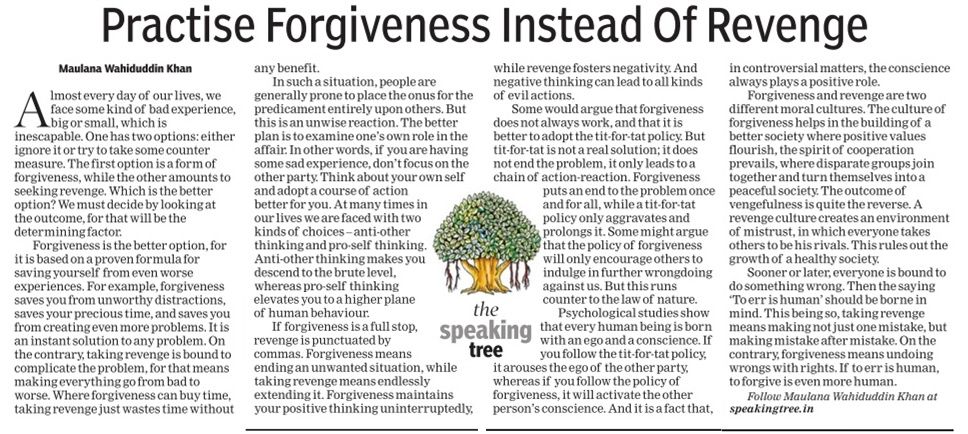 Show what was the main thing in the life of all these great people.
Show what was the main thing in the life of all these great people. - A useful tradition for children and adults — daily write out and memorize a verse from a chapter of the Gospel that touched the heart.
Prayer
- The day of all family members begins and ends with prayer. For children, the rule may consist of several short prayers, for example, the so-called. “the usual beginning” (morning prayers and for the coming sleep begin with it) in any prayer book.
- Prayer before and after meals is the most powerful means of spiritual education.
- Before breakfast, it is customary to eat a small piece of prosphora (you can buy it in the temple and cut it) and holy water (you can always get it in the temple) with the prayer "To accept the prosphora and holy water."
- When a child leaves the house (and also before going to bed), he should be baptized with prayer. For example, this: “Lord, bless” or “Protect (name of the child) , Lord, by the power of Your Honorable and Life-Giving Cross and save him from all evil.
 ” Or: “Lord, Jesus Christ, Son of God, bless, sanctify, preserve by the power of Your life-giving Cross”; If you have an obstinate teenager, then you can do it after him, so that he does not see.
” Or: “Lord, Jesus Christ, Son of God, bless, sanctify, preserve by the power of Your life-giving Cross”; If you have an obstinate teenager, then you can do it after him, so that he does not see. - Do not impose a big prayer rule on the child. When learning to pray, attention and sincerity are especially important.
- It makes sense to add prayers to the prayer rule depending on the circumstances : holidays, holy days, fasts, someone's illness, some joyful or sad event.
- When praying at home, light a candle or a lamp, it is desirable that this is the responsibility of the child.
- Do not pray late when the child only dreams of sleep and his attention is relaxed.
- Children should be accustomed to short prayers: “Bless the Lord”, “Glory to Thee, Lord”, “Lord have mercy”, “Most Holy Theotokos, save us”, “Glory to God for everything”; "God bless me for teaching" (sincerely, not automatically).

- Help your child make a commemoration. All names there should be entered only by him at his own heart's call, because this is his commemorative.
- In the child's room (as well as in other rooms and the dining room) there should be icons. The main and larger icon should be the icon of the Savior or the Holy Trinity.
Church Sacraments and Services
- On Sundays, Christians participate in the Sacrament of Holy Communion. Children under 7 years of age may receive the Sacrament without confession. One should not directly direct the preparation of the child for this Sacrament. You can gently advise, remind, but not demand. Trust the priest, he will help the child himself. When preparing for confession, the child should think about his sins and ask God for forgiveness for each.
- Before the Liturgy, the children should get a good night's sleep, then the morning preparations will not be a burden for them.

- A baby goes to the temple because his parents do it. Then you can explain "The Lord is waiting for you, He will be glad if you come to His house." The goal is not for the children to go to church unquestioningly, but for them to fall in love with the Church.
- To love the services, you need to study them. Use the Divine Liturgy study guide for children. Include the prayers of the divine services in the child's prayer rule: what the choir sings, but not the prayers of the priests or the litanies.
- Accustom to the liturgical circle of fasts and holidays. Meeting the holidays accumulates in the soul a stock of holy impressions, joyful and pure experiences, which will become the foundation of the future conscious religious life. Three components of the holiday: festive clothes; tasty food; holiday pastime.
- Before the start of the school year, many churches serve a prayer service for students.
- Children should stand close to the altar and observe the actions of the ministers, and not in the porch or next to their parents, looking at the back of the adult standing in front.

Asceticism
- Explain to the child the mechanism of committing a sin (from thought to action). If a person does not cut off his passions in his youth, then, over the years, the strength of his will will weaken and passions will become stronger.
- To teach that the soul is the mistress of the body, and not vice versa. To teach a child to overcome laziness, fatigue, to justify their desires. Children should feel the restriction as a necessity. They should know that their parents limit them out of love. A child who cannot consciously and completely freely refuse pleasure is simply a child with an undeveloped will.
- Children's responsibilities should be defined (making the bed, washing, setting the table, shopping).
- The child must understand the purpose of the fasts and their meaning. For him, fasting should become a journey, a school of upbringing of the spirit, and not a time of despondency and envy for those who can afford everything.
 The duration of multi-day fasts should correspond to the capabilities of the child. For example, a long Peter fast (in those years when it is more than 8 days) can be reduced to one, last week.
The duration of multi-day fasts should correspond to the capabilities of the child. For example, a long Peter fast (in those years when it is more than 8 days) can be reduced to one, last week.
Other
- Churching families should invite a priest from the nearest church to bless the apartment. And consecrate the dwelling, and then you will be able to get to know the priest better and communicate.
- Involve godparents in the upbringing of the child, in difficult cases, contact the family confessor.
- Trusting relationships with children are important for a harmonious spiritual life. Parents need to know what spiritual problems their child has in order to help him.
- There must be a hierarchy in the family. The younger ones should realize respect, submission and gratitude to the elders as a law. The elders, in turn, should have love for the younger ones, help and protect them. From V. Rozanov: “The everyday rule that children should respect their parents, and parents should love children, should be read the other way around: parents should respect children, respect their peculiar world and their ardent, ready to be offended every minute nature; and children should only love their parents - and they will certainly love them, once they feel this respect for themselves.

Hierarchy will be learned by children when they see it in their parents, when the mother does not contradict the father, when the parents do not condemn grandparents, when they do not grumble at the bosses.
And most importantly! Pray for the child, pray for the rest of your earthly life, pray, even if it seems that nothing can be changed. Everything is possible for God.
Kirill Borisov,
azbyka.ru
10. Bring up skeptical children (atheists). gospel of an atheist
10. Raising skeptical children (atheists)
Literally all religions rely on early childhood education as their primary strategy for contagion.
Darrel Ray. Virus of God (Ray, 2009, p. 23)
My son, having reached the age of "disobedience", told me that he was going to become a fundamentalist.
Peter Boghossian
There are many books on how to raise a child to be a good Catholic, Muslim, Mormon or Baha'i. But there are no special programs that would teach how to raise a child so that he does not pretend that he knows things that he does not know. In this section, I present my own thoughts on the subject, drawing on the opinions and personal correspondence of well-known atheists, revisiting the literature on raising children in a religious tradition, and using data from a large review study that examined the development of the brain and the formation of beliefs in children.
In this section, I present my own thoughts on the subject, drawing on the opinions and personal correspondence of well-known atheists, revisiting the literature on raising children in a religious tradition, and using data from a large review study that examined the development of the brain and the formation of beliefs in children.
It may seem strange to raise children so that they do not hold irrational metaphysical beliefs. Yes, it is strange, but vital. How can you grow up to be a skeptical person in a society where the vast majority of people are believers and in a culture that frowns on atheism and even condemns atheists?
To begin with, raising children who are skeptical of religion is quite simple. Children tend to adopt their parents' religious beliefs, which is good news for atheists (Acock & Bengston, 1980; Erikson, 1992, p. 141–148; Hoge, Petrillo, & Smith, 1982; Iannaccone 1990, b. 309; Myers, 1996). Many children from religious families renounce their faith and do not return to it. And if belief in God continues its rapid decline, then social acceptance of atheism and the number of atheists will increase (The Global Religious Landscape, 2012). This is a favorable alignment for our children in the future.
And if belief in God continues its rapid decline, then social acceptance of atheism and the number of atheists will increase (The Global Religious Landscape, 2012). This is a favorable alignment for our children in the future.
There are no recipes that are guaranteed to raise a child to be an atheist, but if you encourage the development of critical thinking, skepticism, humanism and freethinking, you are very likely to make him immune to delusional thinking and the desire to pretend that you know things that you do not You know. Since these are all interconnected and interdependent, showing children the importance of a skeptical mindset and teaching them to think skeptically is perhaps the greatest value of all educational values (Luce, Callanan, & Smilovic, 2013). Atheism is skepticism applied to a particular extraordinary claim, and children need to be taught to apply skepticism to messages in general, not just religious and extraordinary metaphysical claims.
It is much more important to develop a predisposition to a skeptical view of the world than critical thinking. If you cultivate a predisposition to skepticism, your children are less likely to catch the faith virus. Anyone can develop the ability to think critically (it's like learning to ride a bike), but without the mindset, a person will not act on the data collected (never ride a bike). In other words, if you have the competence to act on a problem, but don't want to change your mind based on the results, then gathering information was pointless. It was a cognitive farce.
If you cultivate a predisposition to skepticism, your children are less likely to catch the faith virus. Anyone can develop the ability to think critically (it's like learning to ride a bike), but without the mindset, a person will not act on the data collected (never ride a bike). In other words, if you have the competence to act on a problem, but don't want to change your mind based on the results, then gathering information was pointless. It was a cognitive farce.
These tendencies and skills are developed primarily through imitation or modeling. There are many interesting works on pedagogy, correctional and general psychology, which touch on the topic of modeling prosocial behavior. In other words, do what you would like others to do, including your children. For example, if you want your children to love reading, don't read to them yourself, but let them see you read. If you don't want your kids to pretend they know things they don't know, don't pretend like you know something you don't know.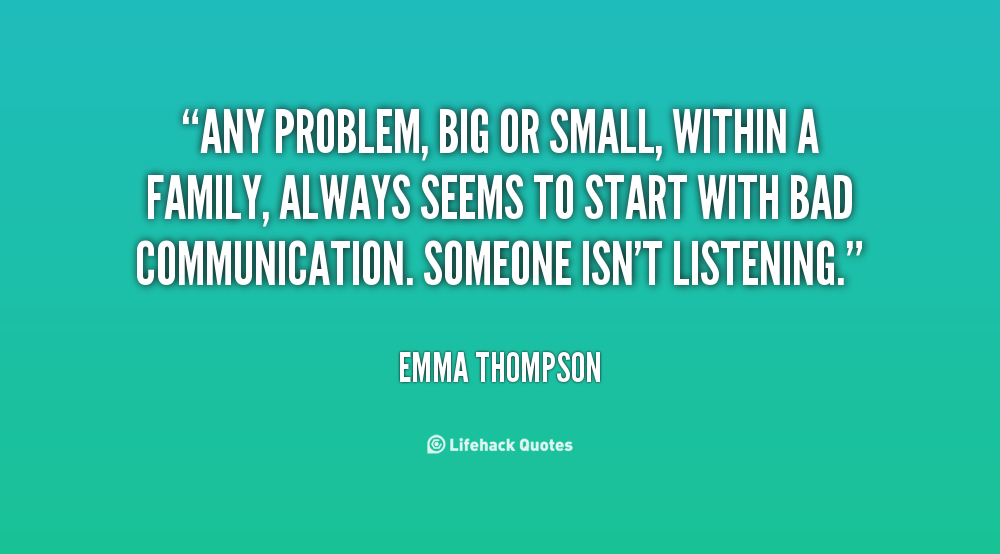 Be the model for the behavior you want them to adopt.
Be the model for the behavior you want them to adopt.
Don't be too pushy or harsh. Be direct but model doxastic openness: tell your children that you are always ready to consider the evidence for specific religious claims (faith healing, people who speak dead languages they have never heard, reincarnation, etc.) Then listen with genuine interest. Help them evaluate the statements by focusing on the reasoning process that led to those conclusions. For example, focus your conversation not on reincarnation but on how people know they've been reincarnated. For example, can the process of choosing the next Dalai Lama be reliable?
Acquaintance with different religions can also be a good prevention of unfounded beliefs. If you present faith as something “other”, mystical and mysterious, then you will push children to what you want to protect them from. Instead, read various religious texts, attend religious services with them, readily answer any children's questions (and not only about faith and religion). Do not make religion a forbidden fruit: read religious literature with your children, act as a model for the behavior you would like them to imitate, listen honestly to them, and gently encourage mutual critical examination of each other's reasoning processes.
Do not make religion a forbidden fruit: read religious literature with your children, act as a model for the behavior you would like them to imitate, listen honestly to them, and gently encourage mutual critical examination of each other's reasoning processes.
This text is an introductory fragment.
God of atheists
god of atheists "And God created man in His own image.." And doomed him to create God according to himself. For the mirror copies the original, the reflection replicates gestures. In the Roman province tired of evil, God is love, on the boats of the conquistadors - the sword, and in the world of alienation - loneliness.
4.2. Indigo Children Mission
4. 2. Mission of the Indigo Children "Indigo Children" are children (and grown-ups from them) who have new, unusual psychoenergetic characteristics and patterns of behavior in society. The term was first used by the American clairvoyant Nancy Ann Tapp in her book
2. Mission of the Indigo Children "Indigo Children" are children (and grown-ups from them) who have new, unusual psychoenergetic characteristics and patterns of behavior in society. The term was first used by the American clairvoyant Nancy Ann Tapp in her book
Parents spoiling children
Parents spoiling children How to raise your own children - these are the topics about which the passions of Americans flare up. Dr. Benjamin Spock is known in literally every family: fifty years have passed since the publication of his practical guide "The child and his care"
Obligation to have children
The obligation to have children And God blessed them and said: be fruitful and multiply, and fill the earth. Breishit 1:28 This is the first of the 613 commandments of the Torah. The Talmud considers that this commandment is obligatory only for men (Babylonian Talmud, Yevamos 65b). Rabbi Meir Simcha of Dvinsk
Rabbi Meir Simcha of Dvinsk
CHILD EDUCATION
PARENTING New York, March 1, 1924 QUESTION: There is a method of raising children based on suggestion during sleep. What is good about this method? ANSWER: This kind of suggestion is nothing but progressive poisoning. It destroys the last signs of the will. Education -
Postmodern for children
Postmodern for children Letters: 1982–1985
1.10. Raising Children in America. (Spock B. On the upbringing of children. M., 1998)
1.10. Raising Children in America. (Spock B. About raising children. M., 1998) I believe that in our country (USA) there are more stresses than in any other, although we could easily avoid them. We do not particularly suffer from poverty, as most of us live better than people at
About the “desired number of children”
About the "desired number of children" It must be admitted that we Russians, seduced by the “bright future” and believing in the “care of the state”, thoughtlessly limited our families to children in the second half of the 20th century. Now the Kremlin does not need instructions on the “desired number ...”, but the creation of conditions for
Now the Kremlin does not need instructions on the “desired number ...”, but the creation of conditions for
PROBLEMS OF CHILDREN
PROBLEMS OF CHILDREN - How is your daughter doing? - they asked the woman. - My beloved daughter! She is so happy! She has such a wonderful husband! He gave her a car, bought her the jewels she dreamed of, hired servants for her. He serves her breakfast in bed and she gets up at
HOW TO EDUCATE CHILDREN
HOW TO EDUCATE CHILDREN A married couple asked the Master how to properly raise children. In response, they heard a Hebrew saying: “Do not limit children to your own knowledge, because they were born in another time.
Spiritual education of children
Spiritual education of children I have a general question about raising children. What kind of environment is favorable for the spiritual development of children? I would wholeheartedly advise not to make any effort to educate children spiritually. It can create
What kind of environment is favorable for the spiritual development of children? I would wholeheartedly advise not to make any effort to educate children spiritually. It can create
Take a cue from children
Take a cue from children Has anyone told you, "Look at life easier"? Sometimes this advice can bring considerable benefit to both the soul and the body. Everyone needs to learn to accept their failures and mistakes with ease. Sigmund Freud conventionally singled out three components of a person's personality:
About the wisdom of children and adults
About the wisdom of children and adults And adults will behave more stupidly than children, and children will teach those who call themselves
Child-rearing
About raising children Meanness is committed by the one who brings up his child as a scoundrel.






